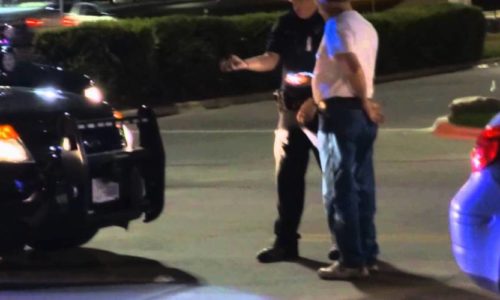The Arrest Process in Georgia

What Is the Arrest Process in Georgia
Explore the arrest process in Georgia including the common steps in how a person moves from arrest to case dismissal or sentencing.
What is the Process of Being Arrested?
The arrest process begins with law enforcement knowing, or having reasons to believe, you are guilty of criminal conduct. The arrest process sets in motion a complex series of actions in the criminal justice system. There are several ways which can lead to someone being taken into custody.
Why People Are Placed Under Arrest
- A criminal investigation results in a warrant being issued for your arrest.
- An arrest warrant has been issued for known or alleged crimes (i.e., failure to appear, parole violations, etc.)
- An interaction with law enforcement which produces reasonable suspicion or proof of criminal conduct.
- A wanted person voluntarily surrenders themselves to law enforcement.
Arrest vs. Being Detained. Being detained, even if you are handcuffed, is not the same as being arrested. Being detained is simply a “brief and cursory” holding of someone while an officer sorts out a situation. If you are detained the officer will probably write notes or a report which includes your personal information and a description of the situation. Simply being detained does not cause you to have an arrest record.
If you are detained the usual outcomes are:
- The police advise “you are free to go” and the situation is over.
- The police issue a citation (ticket) which may or may not require a court appearance.
- The police place you under arrest. You are then taken to jail to be booked.
The Experience From Arrest Through Sentencing
Being Placed Under Arrest
Even prior to being arrested you are protected by certain Constitutional Rights. Perhaps the most important is your Right to generally not answer police questions. An exception in Georgia is that you must present your driver’s license, vehicle registration, and proof-of-insurance during a traffic stop or accident investigation. The right to remain silent should certainly be exercised when you are placed in detention or under arrest.
At any time that you lie to an officer, hide or destroy evidence you are subject to charges of “obstruction”.
When a law enforcement officer advises you that you are under arrest you should immediately comply with all orders. Failure to comply, including any perceived physical actions, to hinder the arrest process is considered “resisting arrest”.
Obstruction and resisting arrest are charges which will be filed along with the primary reason for your arrest. As the number of charges against you increases, so does the magnitude of your legal problems.
What Happens When You Get Arrested?
Police and other law enforcement agents follow specific rules and procedures when making an arrest. Among these are an officer advising you that you are being placed under arrest, and being read your Miranda Rights. Miranda Rights were established to protect Fifth Amendment rights to avoid self-incrimination. Police officers must read you the Miranda Warning at the time you are taken into custody or present for a police interview (interrogation).1
How much should you cooperate with police? As previously mentioned, you certainly want to cooperate physically. Do not hinder the officer handcuffing you, become belligerent or do anything that could be considered assaulting the officer. Georgia Legal Aid offers the following advice, “Tell the police nothing, except your name, age, and address. Don’t give explanations or stories or try to excuse the conduct. If you can’t pay for a lawyer, you have the right to a free one. Don’t talk to the police unless your lawyer is present. Keep in mind that lying to a government official is a crime but remaining silent until you consult with a lawyer is not. Even if you have already answered some questions, you can refuse to answer other questions until you have a lawyer”.2
During the arrest procedure the police will direct you to put your hands behind your back. They will handcuff you, read you the Miranda Warning, and search your person for weapons and contraband. Any items removed from your possession will be placed in a bag by the police. The bag will be turned-in to the booking officer for safekeeping. The police will then transport you to the appropriate facility (police department for booking, hospital for injuries, etc.). If you were driving when taken into custody, they may have your vehicle towed to an impound yard, or allow a person of your choosing to take possession of the vehicle.

CLICK IMAGE FOR LARGER VERSION | Image courtesy of the Bureau of Justice Statistics, an extension of the U.S. Department of Justice
What Happens After You’re Arrested?
The arresting officer will normally transport an arrestee immediately to the appropriate booking facility. If the arrestee has physical injuries or is acting mentally disturbed the officer may take the person to a hospital or treatment facility. Upon arrival at the jail, the arresting officer will take you to the booking area. Depending on the volume of persons to be booked you may be booked immediately or placed in a holding cell to wait your turn.
Jail Booking Process
The booking process includes entering personal identification information into a computer system, taking fingerprints and mugshot photos. The booking officer will probably use the information to perform a computer check for outstanding warrants.
After the booking process you will be allowed a phone call to a person of your choosing. Usually, the call is to a family member or friend who can contact a bail bondsman.3 Next, you will be put you in a jail cell. You will remain in custody until you post bail or a judge orders you to be released.
Getting Out of Jail
The time it takes to get out of jail depends upon the nature of the charges and a few other factors. Generally speaking, there are four ways to be released from jail after an arrest.
- You, or someone acting on your behalf, can post cash for the full amount of the bond.
- You may be able to leverage real estate as collateral with the court.
- You can engage the services of a local bail bond company.
- A judge may allow you to be released on your own recognizance (no bond required).
What is a Bond Hearing
A Bond Hearing is an initial appearance in magistrate court. appearance for the purpose of a judge determining if a person may be released from jail and setting the requirements for release. Typically this means determining the dollar amount of bail a defendant is required to post to secure their release until trial. In felony cases, a judge may set other requirements such as surrendering a passport or limiting travel.
The timeframe for an initial appearance to be held is 48 hours if an arrest occurred without a warrant, and within 72 hours if there was an arrest warrant.4
For common or lesser crimes (such as a first DUI), the bail amount might be set automatically. In this situation, the defendant will be advised of the bond amount during the booking process.
In any situation, you should contact a nearby defense lawyer as soon as possible. Being represented by a lawyer can prevent costly mistakes and get you through the process as easy as possible. Remember, it is not the responsibility of people within the criminal justice system to give you advice or otherwise help you.
Relative to the bond and bail process, a lawyer can help you by:
- Representing you to get a fair bond hearing
- Advocating for no bail or a bond reduction
- Consulting wth you on how to avoid bond revocation and being returned to jail
- Directing you to a trustworthy bail bondsman in your area
What If I Can’t Afford Bail?
Depending on the circumstances you may not be required to post bail. If you are required to post bail, and cannot afford it you have some options. If you cannot pay the set bail amount you may be able to get bail money based on good credit and employment history. If you cannot afford bail and are charged with felony crimes you will probably remain in jail until your case is settled.
You’ve Been Formally Charged – Now What?
Arrested vs. Being Formally Charged
A police officer executes an arrest citing specific charges. The police report, evidence and witness comments are reviewed by the district attorneys office. A prosecutor will make a decision on whether or not to drop charges or formally file charges.
If the prosecutor decides to press charges you need a lawyer. If you hire a defense lawyer, they will contact the prosecutor to discuss your case. Ideally, your lawyer can have your case dismissed. If the prosecutor insists on formally pressing charges your lawyer may be able to negotiate reduced charges and avoid a jury trial. If your lawyer believes the prosecutor is being unreasonable and has a weak case, your lawyer may recommend fighting the charges in court.
Understanding Types of Criminal Charges
How Serious Are the Charges and What Are the Consequences?
Misdemeanor crimes are generally a charge that is punishable by incarceration for one year or less. The sentence may be served in county jail or state prison. Provisions such as “first-time offender status” sometimes allow for alternative sentencing such as pretrial diversion or probation. Pretrial diversion is often given for crimes such as shoplifting, minor drug possession, etc.
Felony crimes are serious crimes punishable by imprisonment in excess of one year or death. Felonies include violent and non-violent crimes, and often have various classes according to their seriousness and their potential punishment upon conviction.
Extreme Felonies – Seven Deadly Sins Law
In 1994, the state of Georgia passed a Seven Deadly Sins law. Effectively this identified the crimes of murder, armed robbery, kidnapping, rape, aggravated sexual battery, aggravated sodomy and aggravated child molestation as particularly egregious. The minimum sentence for these crimes is 10 years in state prison, with the last four of those listed mandating a minimum of 25 years to life in prison.
First-degree murder is punishable by a life sentence without parole (or parole for at least 30 years), or death. Second-degree murder requires a sentence of imprisonment for not less than 10 years, and up to 30 years.
The Two Strikes Law – a second conviction of any of these crimes will automatically mandate a sentence of imprisonment for life without the possibility of parole.
How Long for Court Date After Arrest
If you are being held on a misdemeanor charge, you are entitled to a trial date no later than 30 days following the date you were arraigned or entered a plea, whichever is later. If you are not being held in custody, the court must set trial within 45 days following your arraignment or plea. >/p>
Hiring a Defense Lawyer vs. Public Defender
Yes, hiring a defense lawyer can be relatively expensive, however; you have to consider what is at stake for you personally. A conviction of any kind leaves you with a criminal record, and you may incur community service, steep fines, and incarceration. Whether you do or do not hire a lawyer it’s not going to be a cheap experience. Hiring a lawyer gives you a shot at achieving the best possible outcome – avoiding conviction, fines, community service and incarceration.
Getting a public defender is not a guaranteed thing. In 2003 the State of Georgia passed the Georgia Indigent Defense Act of 2003. This legislation sets the standards for the provision of indigent defense representation. To get a public defender you must meet specific requirements. To determine Indigency, the defendant is interviewed by an employee of Indigent Defense at Magistrate Court. Unless you are extremely poor you probably will not qualify to receive free representation.
Why is it expensive to hire a lawyer? The best criminal defense lawyers invest a tremendous number of hours to research your case, negotiate with prosecutors and interview witnesses. They may need to hire expert witnesses, investigators and prepare your case for trial.
Potential Outcomes for Your Case
Charges Are Dropped
A good defense lawyer can sometimes convince the prosecutor’s office to drop all charges. This usually happens when the arrest was flawed, new evidence disproves the allegations or other things indicate the charges are problematic.
An arrest record, even if charges are dropped or you are not convicted, remain in court records. This means that your arrest will show up on background checks. In Georgia, there is a “Record Restriction” process which can expunge your criminal record from being accessed by entities beyond the judiciary.5 Your criminal defense lawyer can manage the expungement process to seal your arrest record from public access.
Plea Bargaining – Negotiated Deals
The practice of plea bargaining is effectively negotiating with the prosecutor to get the most favorable outcome. This saves the costs and stress of a jury trial and allows you to avoid the highly unpredictable nature of a jury trial. If you are facing prosecution, plea bargaining is smart because you cannot lose a case by trying to negotiate. Your lawyer will always advise you of any offer for you to decide whether or not to accept the offer. It is estimated that 90% of criminal prosecutions are settled through plea bargaining.
Court Trials – Jury Trials
Criminal cases prosecuted in courts are challenging and outcomes are very unpredictable. You need an experienced trial lawyer if your case is going to be tried in court.
The criminal trial process in Georgia is very complicated. A criminal trial will substantially increase the amount of time required to reach a conclusion. Every case has its own unique circumstances, therefore it is virtually impossible to provide a general idea of the results you can expect.
Navigating the justice system is very complicated. If you have been arrested we encourage you to call our law firm and meet with a defense lawyer. A little time with us can make a world of difference for you. To learn more, call 678-880-9360 to schedule an appointment with a lawyer.
FOOTNOTES & CREDITS
- 1 FindLaw, “Chronology: The Arrest Process”, 2018, Available from FindLaw
- 2 Unknown, “Your Rights and the Police”, February 23, 2018, Available from Georgia Legal Aid
- 3 Findlaw, “The Role of a Bail Bondsman”, 2018, Available from Findlaw
- 4 Unknown, “Criminal Process Before the Trial”, July 30, 2004, Available from Georgia Legal Aid
- 5 Unknown, “Expungement of Criminal Records”, December 17, 2015, Available from GeorgiaGov


